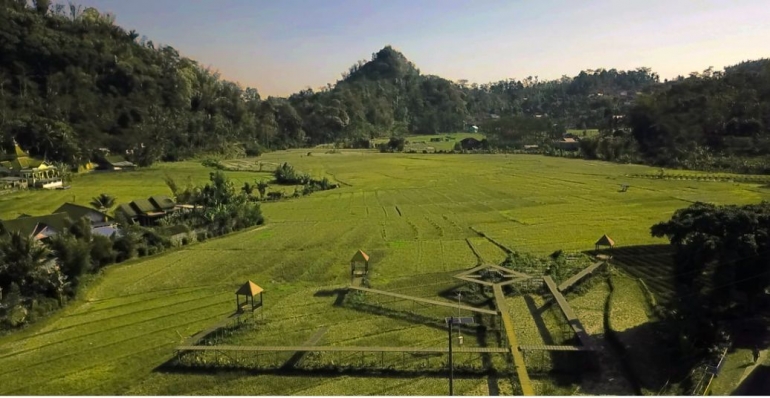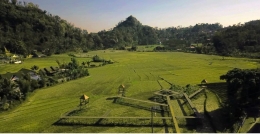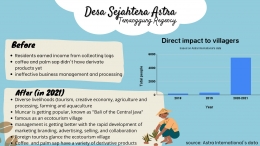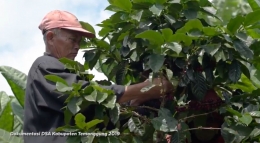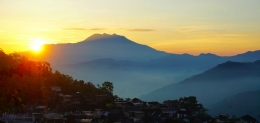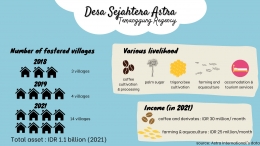Running a company nowadays is not only putting profit as the number one target, but has to bring more added value to the environment and the social. This concept is increasingly intensified by global investors and countries around the world, to tackle the climate crisis and achieve the Sustainable Development Goals (SDGs) in 2030.
While, some companies attempt to make their business to be more friendly environment and bring social impact, most of them still consider as part of the corporate social responsibility (CSR), which still bring impact either to environment or social.
For a company, supporting the local community / village to be an ecotourism village can be a challenging but meaningful for stakeholders. Indonesia’s conglomerate, PT Astra International Tbk (Astra), for instance, has started to upgrade the economic scale and social impact to villages across Indonesia since 2018.
The program called “Desa Sejahtera Astra” (in English : Astra prosperous village), is part of the firm’s CSR (Corporate Social Responsibility) activities every year. Currently, it has supported 930 villages in 34 provinces across the archipelago, with four pronged focuses: coffee cluster, processed agriculture and commodities cluster, marine and captured fisheries cluster, and creative & culture cluster.
One of the assisted villages is Muncar Village, which is located at the northern tip of Temanggung Regency, or 25 kilometers from Temanggung, a small city in Central Java. With an area of about 943 hectares, the village is situated on a plateau of three mountains – Sumbing, Sindoro, and Prau.
In 2018, Jardine Cycle & Carriage-backed Astra together with a local youth activator, Sofi Ahmad, began to develop three villages in Temanggung, mapping up the potential and building the master plan to improve the village. It now has 14 villages under Ahmad and Astra’s supervision.
Muncar is known to be a tobacco producer, robusta coffee cultivation, and other agriculture commodities. However, coffee was just a runaway crop. Tobacco was the flagship crop for farmers, because the price per kilogram (kg) is as high as a gram of gold.
However, growing and selling tobacco didn’t make the farmers rich. Many farmers were in debt by tobacco buyers. Another problem, Ahmad figured, was the unconsolidated farmers, not transparent and no inventory management. From the environmental perspective, tobacco is a monoculture crop that can damage the soil, and is unable to support farmers’ livelihoods.
Ahmad found that coffee cultivation becomes the solution. He had to convince the local communities and farmers that coffee will bring more added value for the villagers if they can process it in the right way. At the same time, he introduced the 'farmpreneurship' concept, which required the farmers to work together, have the the risk management and inventory, and transparent.
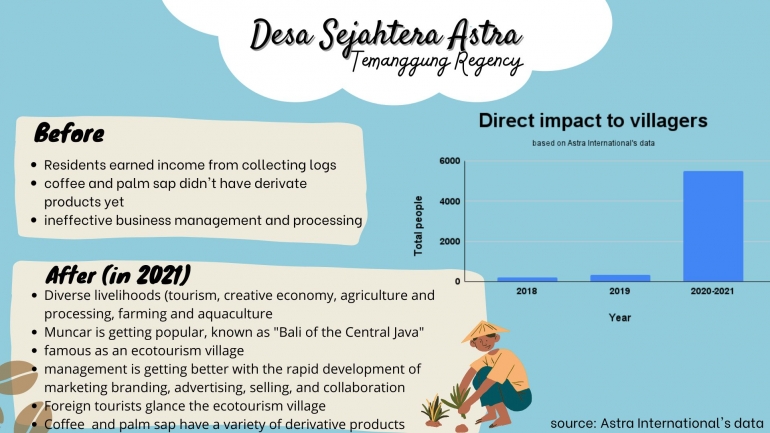
“It’s quite challenging to convince the farmers at the beginning, but after we explained with the local wisdom, they could accept it. We emphasize farmers to be adaptive and agile. Those who play alone will fall. We teach them on doing partnership. Although the economic scale is small, but it is sustain. Therefore, the pandemic didn’t give us much impact, because we are solid,” Ahmad explained.




